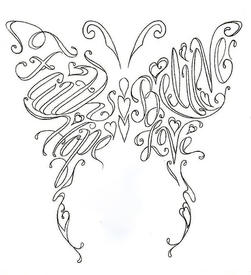3500 calories in a pound...

bearxfoo
Posts: 81 Member
I keep seeing things about how you'd have to eat your maintenance calories PLUS 3500 to gain one pound.
and I was just wondering..
does that 3500 have to be in one day, OR is it like a build up? 100 calories over one day, 300 calories over the next, etc, and then by the end of whatever you've gained a pound? Is that how it works?
Sounds kind of dumb but from watching a lot of TV shows I know that some people eat to extremes and consume 10,000 calories a day or something crazy, soooo
and I was just wondering..
does that 3500 have to be in one day, OR is it like a build up? 100 calories over one day, 300 calories over the next, etc, and then by the end of whatever you've gained a pound? Is that how it works?
Sounds kind of dumb but from watching a lot of TV shows I know that some people eat to extremes and consume 10,000 calories a day or something crazy, soooo
0
Replies
-
Yes, the build up method. You have to eat 3,500 cals OVER your TDEE maintenance to gain a pound. For example, if you have a 2000 cal TDEE and you eat 2,050 cals a day, it would take you 70 days to gain a pound. Small changes add up!
This is important to keep in mind when you weigh every day and you see that although you stayed under your goal, you "gained a pound" (which is impossible unless you ate 3,500 above your maintenance, which is usually above your goal), but you really only changed your water retention (so don't freak!).
Fun fact: the average American only gains 1 lb per year (but pretty much never loses it).0 -
It can be either...
If you ate an additional 1166 calories over your maintenance amount, you would gain 1/3 of a pound.
If you ate 350 over it, you would gain 1/10th of a pound.
All relative.0 -
as far as i know ... it is over a week ... they say if you have a 500 cal deficit then you will lose that much cos it takes that much to burn a pound.
Anyone feel free to correct me if i'm wrong0 -
It will be commutative- Your daily calorie surplus will add up each day and if during the week you manage to eat about 3,500 in surplus, then you should gain about a pound.
Hope this helps : )0 -
Well, ive been averaging almost 4,000 calories for the last week and ive gained 3 1/2 lbs.0
-
It's 3500 over your TDEE, correct?
So, if I eat 500 over everyday, at the end of the week, I'll gain one pound. Wow. That would be a lot of food.0 -
It's 3500 over your TDEE, correct?
So, if I eat 500 over everyday, at the end of the week, I'll gain one pound. Wow. That would be a lot of food.
Exactly. And if you have a 500 cal cut from your TDEE, you will lose 1 lb. 0
0 -
It's 3500 over your TDEE, correct?
So, if I eat 500 over everyday, at the end of the week, I'll gain one pound. Wow. That would be a lot of food.
Exactly. And if you have a 500 cal cut from your TDEE, you will lose 1 lb.
Not according to the Eat more lose more folks. I eat at my TDEE. The theory is that I'll slowly drift down to my ideal weight and body fat by eating at that level. At least that's what I'm trying out. I'll cut it if it doesn't work. So far so good. Not losing but not gaining either, which freaks me out considering I increase my calories by 1,000 per day.
I've been on a massive plateau, so I'm trying this to break it.
BTW, you look like Julia Roberts. LOL.0 -
What if we ate 500 calories a day which equaled to 3500 a week total? How much would we lose?0
-
What if we ate 500 calories a day which equaled to 3500 a week total? How much would we lose?
You would die.0 -
What if we ate 500 calories a day which equaled to 3500 a week total? How much would we lose?
You would die.
Not technically..atleast not if it's for a short amount of time? And also yes I understand it's way below the healthy range of calorie level, but you're still consuming some food than none!?0 -
What if we ate 500 calories a day which equaled to 3500 a week total? How much would we lose?
Let's see.
Say your body really slowed down, and it would need to if you only ate that much. But lets say it still needed 1000 cal a day for moving you around, and getting brain to function.
With so few cal's, and even less carbs, you'll be burning muscle to convert to carbs.
Since 1 lb of muscle only provides 600 cal's of converted energy, and 1lb of fat supplies 3500 ca'ls of energy, but hardly any to convert to glucose.
So let's say at rest, totally BMR, which is down at 1000 trying to operate. So that means 30% carb usage. Or 300 cal's.. Brain wants another 400 glucose for it's use. so total 700 glucose used.
So over the course of 3 days you could lose a lb of muscle easy.
Would take 5 days to burn a lb of fat.
So common denominator of 15 days.
5 lbs of muscle gone.
3 lbs of fat gone.
Of course, as that muscle is being eaten away, metabolism drops even worse, but that just protects you the because you don't need 1000 calories anymore.
It would be just quicker to stop eating until the weight is gone.0 -
This is all too technical for me, yesterday I ate just over 1300 calories and this morning I weigh 1.2lbs heavier than I did yesterday morning. So to say you need to eat an extra 3500 to gain a lb doesn't make sense0
-
I think it would depend on the type of calories your eating would play a huge part in it, and also what kind of weight your gaining. eg. fat or muscle. also what kind of weight training your doing all will have a factor in it. There's so many variables in that 3500 calories in a pound formula for it to be spot on.0
-
This is all too technical for me, yesterday I ate just over 1300 calories and this morning I weigh 1.2lbs heavier than I did yesterday morning. So to say you need to eat an extra 3500 to gain a lb doesn't make sense
You cannot gain 1.2 lbs in a day. It's impossible. So, it's probably water retention. Don't weigh everyday.0 -
This is all too technical for me, yesterday I ate just over 1300 calories and this morning I weigh 1.2lbs heavier than I did yesterday morning. So to say you need to eat an extra 3500 to gain a lb doesn't make sense
Being 1.2 pounds heavier in one day compared to the next is normal. my weight can deviate 3 pounds from day to day.0 -
This is all too technical for me, yesterday I ate just over 1300 calories and this morning I weigh 1.2lbs heavier than I did yesterday morning. So to say you need to eat an extra 3500 to gain a lb doesn't make sense
There's no way you gained 1.2 LBS overnight. It is definitely water retention. Stay at it, weight loss is never linear.0 -
This is all too technical for me, yesterday I ate just over 1300 calories and this morning I weigh 1.2lbs heavier than I did yesterday morning. So to say you need to eat an extra 3500 to gain a lb doesn't make sense
lb of fat.
If your glucose stores are depleted, you can eat 500 cal's of carbs, and the stored glucose/water will weigh 1 lb also. You can do about 3 lbs that way easy.
That's the old "ate a piece of wedding cake and gained 3 lbs on Suday" - despite the fact the wedding cake and probably all the food combined didn't even weight 3lbs.
Therefore, logically, it must be something else. That is it.0 -
What if we ate 500 calories a day which equaled to 3500 a week total? How much would we lose?
Depends how much you expend, how much fat you have to start with, how your bod responds to the deficit and if that 500 contains everything you need.
Some middle aged obese people on 600 calories achieved this, as an example :-
" Average weight loss during
the 8 weeks of dietary intervention was 15.3±1.2 kg,
equivalent to 15±1% of initial body weight (Table 1).
Weight loss was 3.9±0.2 kg during the first week (61% of
which was fat loss), 5.7±0.6 kg (86% as fat) between
weeks 1 and 4, and 5.7±0.7 kg (94% as fat) during the final
4 weeks."0 -
Brain wants another 400 glucose for it's use
It switches to ketones from fat during carb deprivation.0
This discussion has been closed.
Categories
- All Categories
- 1.4M Health, Wellness and Goals
- 398.2K Introduce Yourself
- 44.7K Getting Started
- 261K Health and Weight Loss
- 176.4K Food and Nutrition
- 47.7K Recipes
- 233K Fitness and Exercise
- 462 Sleep, Mindfulness and Overall Wellness
- 6.5K Goal: Maintaining Weight
- 8.7K Goal: Gaining Weight and Body Building
- 153.5K Motivation and Support
- 8.4K Challenges
- 1.4K Debate Club
- 96.5K Chit-Chat
- 2.6K Fun and Games
- 4.8K MyFitnessPal Information
- 12 News and Announcements
- 21 MyFitnessPal Academy
- 1.5K Feature Suggestions and Ideas
- 3.2K MyFitnessPal Tech Support Questions










